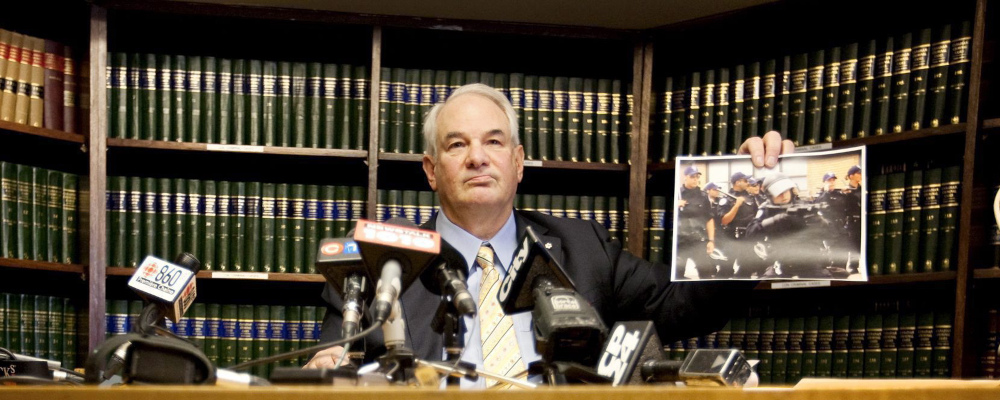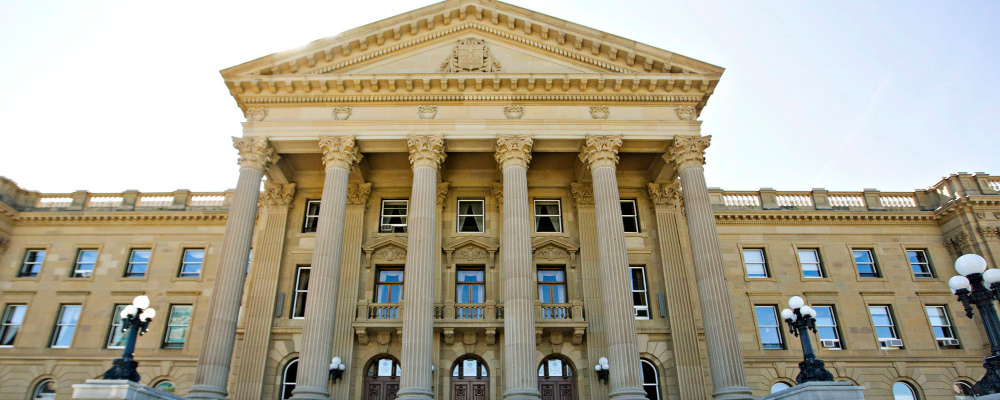Over the next few weeks, The Hub is offering readers a taxonomy of Canadian conservatism. Different writers are describing their social conservatism, classical liberalism, Red Toryism, techno-futurism, and perhaps more eccentric branches of the political family tree. I don’t know if I should be insulted or flattered that, for my contribution, the editors didn’t even pretend that I have a coherent philosophy to convey. Instead, they asked if I would describe my own presumably undefinable worldview “to accompany the series.”
I told them that I can’t think of anything more self-indulgent than trying to corral the motley herd of unexamined prejudices and preferences that passes for my political philosophy. Which makes it a perfectly enjoyable assignment for me, but I can’t imagine why anyone else would care or bother to read it. Assuming no one will, I’ve approached the exercise without any effort at concision or order. Think of what follows as a loose and much less-entertaining version of Crash Davis’s credo in Bull Durham.
In recent years, I’ve been less likely to describe myself as conservative (much less “a conservative”—conservatism is a disposition, not a lifestyle brand), though I sometimes still use the word as a convenient shorthand. This is because I find less and less in modern life that is worth conserving. Because I am not a liberal, classical or otherwise, that leaves me politically anonymous. Whittaker Chambers called himself a “man of the right,” but that locks one into the framework of the French Revolution, whereas I hope that I would not have been on either the right or left side of the National Assembly but outside, decrying its wicked work.
That brings me to my first principle: I can’t think of a single revolution I would have supported at the time. Some counter-revolutions, yes, but no revolutions. The very word “revolution,” like its handmaiden “progress,” makes my thumbs prick. That doesn’t mean that some changes haven’t been good or that I eschew all the products of, say, the Industrial Revolution. I just would have been agin’ it at the time, as I am agin’ current technological revolutions that threaten to further detach us from nature and our physical humanity.
That is a second principle: I prefer the human and the natural to their opposites. Things that take us further from an embodied experience of the world tend to be ugly and alienating. Not as a rule, but on balance. Buildings, furniture, clothing, tools, and household goods that lack ornament, whimsy, craft, differentiation, or the imprint of an identifiably human creator defy their surroundings and repel our gaze. I regret most mass production, even as I often avail myself of its convenience.
So, inconvenience is a third principle (hypocrisy too, apparently). We are too quick to trade away the human touch for convenience. Efficiency is usually inhuman, when it isn’t outright antihuman. A hand-written note takes longer to write and to send than an email or a text, but don’t tell me it isn’t more meaningful. I prefer to visit three different shops, each run by someone who specialises in what they sell and who knows my tastes than to visit a single superstore. Box stores, national chains, global brands, Amazon: they leave me as numb as most popular entertainment, and for the same reason. I want more variety, more originality, more eccentricity, and more personality in my life—which means less efficiency.
Inconvenience is important because convenience is about cutting corners, and it is in the corners that we find the imperfections and idiosyncrasies that differentiate us from machines. If you sand the rough edges of life, you lose much of its meaning. We experience the meaning of life not as a rational process of understanding but in unexpected encounters with the world and the people around us. An ATM may be (marginally) faster than a bank teller, but it can’t smile or tell you something you’d never thought of before. It won’t be a meaningful encounter.
That leads to another principle: I believe that creation is suffused with meaning, even if that ultimate meaning is beyond our comprehension. There is deep comedy in the darkest tragedy and deep tragedy behind comic relief. Shakespeare understood the possibility—or perhaps the unavoidability—of such a “tragical-comical-historical-pastoral” existence, simultaneously delightful and confounding. So did Virgil: “Sunt lacrimae rerum et mentem mortalia tangunt,” which Cecil Day-Lewis rendered as “Tears in the nature of things, hearts touched by human transience.”
And yet, as I said, I believe we are here for a reason and that, as St John Henry Newman knew, “God has created me to do Him some definite service. He has committed some work to me which He has not committed to another. I have my mission. I may never know it in this life, but I shall be told it in the next. … He has not created me for naught.” Or, as St Paul put it: “For now we see through a glass, darkly; but then face to face: now I know in part; but then shall I know even as also I am known.” All will be revealed, not in time but in the world beyond time.
Philosophically speaking, I am not philosophical. At least not as that word has been corrupted by intellectual speculators over the last four hundred years. If Aristotle, Plato, Avicenna, or Aquinas didn’t say it, it probably isn’t worth saying. Since the middle ages, philosophers have mostly just caused trouble. At their worst—the utilitarianism of Bentham and Mill; the empirical proto-liberalism and scientism of Locke and Bacon; the teleological presumption of Hegel and Marx—they have been self-fulfilling prophets of mass murder, misery, and environmental destruction. I don’t know that this can be reduced to a principle, but Dr Johnson’s violent refutation of Bishop Berkeley’s “ingenious sophistry” is a good illustration of what I mean. I am a Johnsonian. I prefer the rough experience of reality to the slippery smoothness of intellectual abstraction.
I believe that poetry captures life better than prose. And while I am not convinced by Shelley’s claim that “poets are the unacknowledged legislators of the world” (or by anything else that obnoxious man-child wrote), if it were true, the dismal quality of modern poetry would explain the dire state of modern legislation. I believe that to prepare our children for life, we need to teach more good poetry and to teach it, in that most telling of pedagogical phrases, “by heart.” We remember so little of what we learn in school, but what we learn by heart we always have with us.
I believe that our ancestors were, with some adjustment for cultural taste and the mundane brutality of the pre-modern world, as smart and as sensitive as we are. If you think you understand the human condition better than Shakespeare or Cervantes, Montaigne or Moliere, Heloise or Austen, Duns Scotus or St Hilda, St Francis or St Dominic, Zhuangzi or Mencius, Averroes or Maimonides, then I don’t know how to explain to you that you are incontrovertibly mistaken. That doesn’t mean they weren’t sometimes wrong, but on balance they were no more wrong than we will prove to be.
More generally, I agree with Richard Weaver that ideas have consequences, but I don’t think that many ideas truly penetrate the popular consciousness. Most that do are malign. Luther, Locke, Darwin, Marx, Freud, Gramsci—the history of modern ideas with real-world consequences has been a cascade of destruction and disenchantment. But I also believe that, despite the best efforts of the ideas-merchants, ideas are not more important than the buried folkways, cultural memories, half-remembered religions, and the long intergenerational histories that run below the intellectual currents of the age.
I believe that the social and political crises we face are, as most crises in human history have been, symptoms of an underlying crisis of spirit. We will not solve them by looking for new planets to despoil or escaping into virtual fantasy worlds. We cannot look for physical solutions to problems of the soul. We must better understand the great spiritual rupture of the Enlightenment between the human mind and the natural world. Until we re-align our lives with the rhythms of nature that nurtured our humanity and our souls with the natural law of which they are a part, we will continue to feel out of place and out of sorts, fighting with ourselves and with each other to regain something we no longer remember that we have lost.
Related to this, I believe in the objective reality of evil and in original sin, and I don’t believe you can adequately explain human history without them or something like them. To counter evil, which is always and everywhere active, we must inculcate its opposites—truth, beauty, and goodness. We can do this by encouraging “love, wisdom, discipline and stillness amid the roaring of the Machine.” These virtues precede and transcend politics, but we should use political power wherever we can to promote them. More generally, the idea that politics should be drained of moral content is not merely absurd but impossible. A conservative who is not willing to use the levers of the state to promote virtue and discourage vice is just playing at politics—or at conservatism.
To take an easy case, under any political system we are going to have houses, buildings, and communities. So the government should ensure that we have more liveable, walkable, and beautiful communities. As Jason Kenney liked to point out when high schoolers would come to take their graduation photos at the Alberta Legislature, there is something in the human heart that gravitates toward beauty. Our public buildings—schools, churches, and government offices—should inspire us. We were able to do this a hundred years ago, with a fraction of the wealth; there is no excuse for utilitarian building today.
Sticking with politics, I have lately borrowed some loose principles for living in a democracy from the late Tony Benn, that grand old man of the English Left. Benn preferred to put his faith in the rough and tumble of politics rather than in unaccountable technocrats, unelected judges, and international bodies. He believed that everyone who purported to wield political power in a democracy should be asked five questions: “What power have you got? Where did you get it from? In whose interests do you use it? To whom are you accountable? How do we get rid of you?” The current populist discontent that so appalls our neoliberal establishment is the result of the latter’s inability to answer these questions satisfactorily, particularly the last two.
Continuing in a political vein, Margaret Thatcher famously (and possibly apocryphally) once cut short a policy discussion by slamming a copy of Hayek’s “The Constitution of Liberty” on the table and declaring “this is what we believe.” A similar declaration of my philosophy would be accompanied by a tall stack of Hopkins’ and Larkin’s poetry; Shakespeare; Boswell’s Life of Johnson; smatterings of Augusto del Noce, Jacques Barzun, and Robert Nisbet; Alexander Solzhenitsyn’s Harvard address; some Jane Jacobs and Simon Leys; Aquinas, Rerum novarum and Quadragesimo anno; and the aphorisms of Nicolás Gómez Dávila.
I mention Dávila last, for it is in one of his longer aphorisms that I find the closest thing to my worldview: “To be reactionary is not to espouse settled cases, nor to plead for determined conclusions, but rather to submit our will to the necessity that does not constrain, to surrender our freedom to the exigency that does not compel; it is to find sleeping certainties that guide us to the edge of ancient pools. The reactionary is not a nostalgic dreamer of a canceled past, but rather a hunter of sacred shades upon the eternal hills.”
It may not add up to much of a governing philosophy, but as a makeshift and occasionally mutable credo, I’ll put it up against Crash Davis’s. Though he was right about AstroTurf and the designated hitter.














